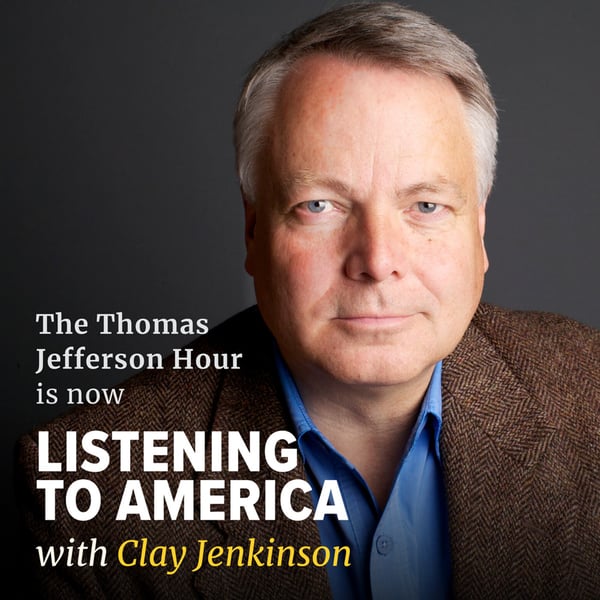#1663 Presidential Finances
Listening to America
Listening to America
4.6 • 1.1K Ratings
🗓️ 4 August 2025
⏱️ 54 minutes
🧾️ Download transcript
Summary
Clay interviews Megan Gorman, the author of the excellent new book, All the President’s Money: How the Men who Governed America Governed their Money. Gorman is a nationally respected money manager for some of the wealthiest Americans. She thought it would be interesting to explore the way American presidents have handled their finances, before, during, and after their time in office. Gerald Ford is a pivotal figure in this regard, because he left the presidency as a young man and had to find a way to make a living beyond the White House. But we spent most of our time talking about George Washington and Thomas Jefferson as bookends in this history: Washington was a brilliant money manager. In fact, says Gorman, he is the richest president if you equalize currency values. Jefferson was a deplorable money manager. He died helplessly in debt. In fact, his daughter Martha had to live on public charity after his death in 1826. And yet, no president was as publicly frugal as Jefferson. In this as in all things, Jefferson was a paradox. This episode was recorded on August 4, 2025.
Transcript
Click on a timestamp to play from that location
| 0:00.0 | Hello everyone and welcome to this week's introduction of the podcast. It was a really, really, really interesting conversation with Megan Gorman, who is a financial manager, a consultant to some of the wealthiest people in the country and, of course, celebrities too. And she has a book called All the President's Money, |
| 0:21.6 | how the men who governed America governed their money. And we concentrated on the first few, |
| 0:26.9 | especially my man Thomas Jefferson, who so woefully mismanaged his money, |
| 0:33.2 | that it would be funny if it weren't also horrible because he died insolvent. |
| 0:38.1 | He died, in fact, millions in debt by today's currency. |
| 0:43.0 | You know, Megan was saying some people just don't want to face their economic issues, |
| 0:48.5 | and so they compound the problem, and Jefferson certainly was that person, |
| 0:53.8 | a perennial optimist. I call him Mr. |
| 0:56.3 | Magoo in this respect, but Jefferson could not manage money, but he lived beyond his means |
| 1:02.5 | all of his life and he never got on top of it. It wasn't all his fault, but it was largely |
| 1:09.1 | his fault. We didn't pension our presidents then. |
| 1:13.8 | And so fascinating, and I can't wait to meet her. |
| 1:17.1 | I'm going to try to bring her out to Vail for a conversation. |
| 1:20.1 | I think it would be a spectacular evening because Gerald Ford, one of her favorites, |
| 1:24.6 | has a special place in Vail life. |
| 1:27.2 | I go there four times a year, |
| 1:28.3 | as I think you know, going soon in August 24th or so for four days. And I always love it. |
| 1:35.6 | We're talking about health care, but we're also, I'm doing a performance as Theodore Roosevelt, |
| 1:39.2 | who comes up in this conversation. Edith, his wife gave him $20 every morning and said, |
| 1:43.6 | I will expect an accounting. |
| 1:45.7 | And at the end of the day, she'd ask him and say, I don't know. |
| 1:49.6 | It's gone. |
... |
Please login to see the full transcript.
Disclaimer: The podcast and artwork embedded on this page are from Listening to America, and are the property of its owner and not affiliated with or endorsed by Tapesearch.
Generated transcripts are the property of Listening to America and are distributed freely under the Fair Use doctrine. Transcripts generated by Tapesearch are not guaranteed to be accurate.
Copyright © Tapesearch 2025.

